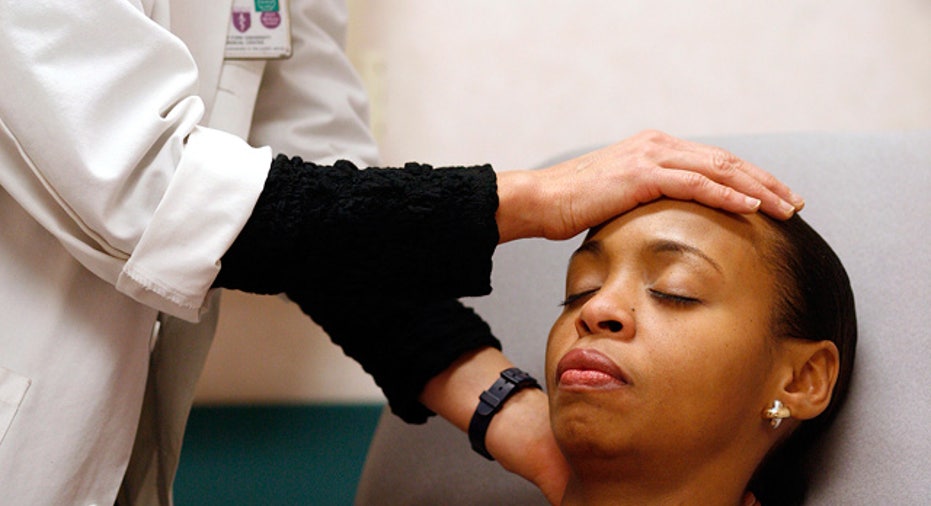Protect Your Cash From Medicare Scammers

A lot of attention has been given to various ways that scammers bilk Medicare. But experts are seeing an increase in the number of cases in which the scammers target not just Medicare, but the Medicare recipients themselves. The result is potentially large financial losses for the elderly, who may be ill-equipped to investigate fraud, be embarrassed at having been fooled or by not know where to turn for help in recovering their money.
How does it all work? Frequently, scammers posing as Medicare specialists will ask for bank account or credit card numbers. Once they have them, they can wipe out victims' savings or run up mountains of credit card bills. Similarly, they are sometimes able to use someone's Medicare number as the first step toward identity theft.
"Treat your Medicare number like a credit card. You would not give out credit card information to a stranger. Do not give out your Medicare card (number) to anyone," says Barbara Dieker, director of the Office of Elder Rights at the Administration of Aging, part of the U.S. Department of Health and Human Services.
But the scammers are masters at getting people to reveal personal information. They may call on the phone and chat up the person, saying they are with the federal government. They may ask the victim to verify his or her address, or if he or she still goes to a particular senior center. The goal is to build trust and credibility. Then, they ask for a Medicare number or bank information.
Fueling the Fear Factor
Scams run the gamut, but they often play on changes in health care coverage, which the elderly may not understand well or be fearful of, says Dieker. An example is the Patient Protection and Affordable Care Act, the sweeping health reform law passed in 2010.
She says one of the first scams to surface occurred in Missouri, where con artists went to seniors' doors hawking "Obamacare" insurance policies. They claimed the policies had a limited enrollment period, so the person must act quickly. To lock in coverage, the person would have to provide their Medicare number. "People are scared to death to lose health care," Dieker says. "They twist and turn to create misinformation about it to make a buck."
Scammers also used the guise of health care reform to call up a beneficiary, claim to be from the federal government, and offer $250 to help with the prescription drug "doughnut hole." This "doughnut hole" is a coverage gap on prescriptions, when a person's drug costs are too high to be covered by basic Medicare, but not high enough to qualify for catastrophic coverage.
The catch: Scammers tell seniors they must provide their bank account number to receive a direct deposit, or their Medicare number.
While Medicare does provide $250 to help with the "doughnut hole," the money is sent directly to the beneficiary, and no one from the government calls to request Medicare or bank account information. "Remember -- there are no forms to fill out to receive this benefit once you qualify for it," it says on Medicare's website. "Don't give your personal information to anyone who calls you about the $250 rebate check."
People often "come into the program without really knowing much about the program and how it works," says Sandra Colon, the South Florida specialist with Senior Medicare Patrol, or SMP. SMP is funded by the Agency on Aging and is tasked with fraud detection and prevention.
Even when they aren't getting scammed, seniors may unwittingly be participating in one. Fraudsters may offer money, gifts or a free lunch, provided they go to a clinic for medical tests, says Robert Targ, a partner with Diaz Reus Attorneys & Counselors in Miami, the city considered "ground zero" for Medicare fraud. "Medicare is billed for all sorts of sophisticated tests they don't need."
Protect Yourself
The first defense for seniors is protecting their Medicare number. Dieker says typically no one from Medicare will call a beneficiary, and a legitimate Medicare representative won't ask for someone's number -- he or she should already have it at hand.
She advises beneficiaries to keep a personal health care journal, tracking medical appointment dates, medications received and tests and procedures conducted. That information should then be compared with the Medicare Summary Notice that comes in the mail each quarter. Charges also can be tracked in real time on Medicare's website.
If something is incorrect, it could be an innocent error -- or it could be fraud. At that point she recommends contacting the SMP, which has offices in each state.
Dieker also cautions beneficiaries to resist the badgering of potential fraudsters. Often Medicare beneficiaries are "isolated, vulnerable and confused. If someone is persistent they feel like they have to act, and feel irresponsible and stupid if they don't."



















